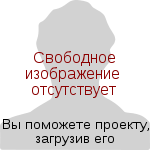- Charles Brenton Huggins
-
Charles Brenton Huggins 
Charles Brenton HugginsBorn September 22, 1901
Halifax, Nova ScotiaDied January 12, 1997
Chicago, IllinoisCitizenship United States Fields physiology Institutions University of Chicago Alma mater Acadia University
Harvard UniversityKnown for prostate cancer
hormonesNotable awards 1966 Nobel Prize for Physiology or Medicine Charles Brenton Huggins (September 22, 1901 – January 12, 1997) was a Canadian-born American physician and physiologist and cancer researcher at the University of Chicago specializing in prostate cancer. He and Peyton Rous were awarded the 1966 Nobel Prize for Physiology or Medicine for discovering that hormones could be used to control the spread of some cancers. This was the first discovery that showed that cancer could be controlled by chemicals.
Huggins was born in Halifax, Nova Scotia, Canada. He graduated from Acadia University with a BA degree in 1920. He then went on to study at Harvard University and received his MD degree in 1924. He died in Chicago, Illinois.
References
- Toledo-Pereyra, L H (2001). "Discovery in surgical investigation: the essence of Charles Brenton Huggins". Journal of investigative surgery : the official journal of the Academy of Surgical Research 14 (5): 251–2. PMID 11700917.
- Forster, R E (June 1999). "Charles Brenton Huggins (22 September 1901–12 January 1997)". Proceedings of the American Philosophical Society 143 (2): 325–31. PMID 11623829.
- Raju, T N (August 1999). "The Nobel chronicles. 1966: Francis Peyton Rous (1879–1970) and Charles Brenton Huggins (1901–97)". Lancet 354 (9177): 520. doi:10.1016/S0140-6736(05)75563-X. PMID 10465213.
- Schmähl, D (1980). "[Charles Brenton Huggins, Nobel Prize for Medicine 1966: "Discovery is our business"]". Chirurgisches Forum für experimentelle und klinische Forschung: VI–VIII. PMID 6993114.
- Drucker, W R (1973). "Charles B. Huggins, MD, FACS (hon)". Surgical forum 24: V. PMID 4618632.
- "Classics in oncology. Charles Brenton Huggins". CA: a cancer journal for clinicians 22 (4): 230–1. 1972. doi:10.3322/canjclin.22.4.230. PMID 4625048.
- Kenéz, J (October 1971). "[Ch. B. Huggins at the age of 70]". Orvosi hetilap 112 (42): 2535–7. PMID 4943846.
- Morii, S (May 1971). "[My professor, Dr. Huggins]". Hinyokika kiyo. Acta urologica Japonica 17 (5): 295–6. PMID 4933515.
- Fukunishi, R (October 1967). "[Pioneer of cancer research: Dr. Charles B. Huggins]". Nippon Rinsho 25 (8): 1709–12. PMID 4868962.
- Schmähl, D (December 1966). "[Charles Brenton Huggins]". Dtsch. Med. Wochenschr. 91 (51): 2308–9. PMID 5333371.
- Frenkel, M (November 1966). "[Charles Brenton Huggins, co-winner of the Nobel Prize in physiology and medicine, 1966]". Nederlands tijdschrift voor geneeskunde 110 (45): 1994–5. PMID 5342106.
- Luft, R (November 1966). "[Nobel prize in physiology and medicine 1966. Charles Brenton Huggins]". Nordisk medicin 76 (44): 1269–71. PMID 5337055.
- Franksson, C (October 1966). "[Nobel Prize of the year. II. Charles B. Huggins]". Lakartidningen 63 (43): 4102–4. PMID 5343069.
- TALALAY, P (June 1965). "The Scientific Contributions Of Charles Brenton Huggins". JAMA 192: 1137–40. PMID 14301033.
External links
Categories:- 1901 births
- 1997 deaths
- Acadia University alumni
- American Nobel laureates
- American physiologists
- Canadian physiologists
- Canadian people of English descent
- Canadian Nobel laureates
- Harvard University alumni
- Nobel laureates in Physiology or Medicine
- People from Halifax, Nova Scotia
- University of Chicago faculty
Wikimedia Foundation. 2010.
